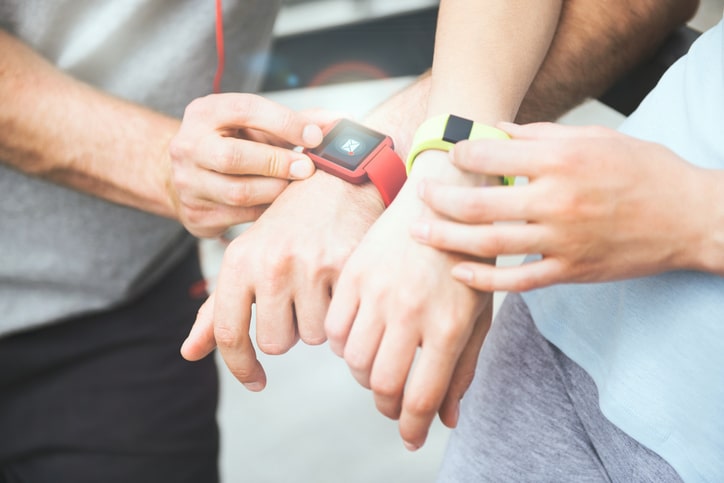Popular wearable activity monitors like Fitbits track your steps and count how many calories you’ve burned. But they don’t help you lose weight.
In fact, you may shed more fat without them.
That’s the surprising finding of the first long-term study examining the effects of fitness tracking devices. It was recently published in JAMA.1,2
Researchers at the University of Pittsburgh followed 470 people who were trying to lose weight. They all were asked to exercise more and to eat fewer calories.
Half the participants were instructed to log their exercise onto a website. The other half used a wearable fitness tracker that monitored their physical activity. The trackers provided feedback on whether participants were achieving their goals for step counts, calorie burning, etc.
Recommended for You: Ancient Black Spice BANISHES BELLY FAT
Researchers have uncovered an ancient spice that may deliver the holy trinity in weight loss support by helping you drop belly fat, keep away new fat, and boost metabolism.
For anyone who wants to see real results—this simple secret is exactly what you need. We created a new video that explains exactly how it’ll help you banish that belly, slim down, and feel your absolute best. Click here now to get the body you deserve.
When the study began, the scientists said they had little doubt about the outcome. “We were pretty confident the people using the trackers would lose more weight,” said Professor John Jakicic. He is the study’s lead author and chairperson of the University of Pittsburgh’s department of health and physical activity.
When the study ended after 18 months, the researchers were stunned by the results. Participants using fitness trackers lost far less weight than those who didn’t.
People not using the monitors lost an average of 13 pounds. Participants using trackers lost less than 8 pounds.
“We were definitely surprised,” said Professor Jakicic.3
The study did not answer the question of why people using trackers have less success losing weight. But researchers have a theory.
Never Use Food as a Reward
The trackers provided a constant reminder that the participants had exercised. Dieters used the numbers on the device as an excuse to eat more.4
“People would say, ‘Oh, I exercised a lot today. Now I can eat more.’ And they might eat more than they normally would,” said Professor Jakicic. “We should not simply tell everyone to go and buy an activity monitor and that it will help them to lose weight.”
Using a Fitbit or another tracker isn’t necessarily harmful. But it’s never a good idea to use food as a reward for exercising. You are conditioning yourself for weight loss failure. In doing so, you will eat back all the calories you burned, and then some.5
Instead, try to make exercise a reward in itself by finding an activity you enjoy, even if it’s simply going for a walk.
There’s something else you should know about weight loss… You don’t have to starve yourself to get thinner. Discover how to unlock your fat-burning potential HERE.
Like this Article? Forward this article here or Share on Facebook.
References:
1http://www.reuters.com/article/us-health-wearables-weight-loss-idUSKCN11Q27Q
2http://www.npr.org/sections/health-shots/2016/09/20/494631423/weight-loss-on-your-wrist-fitness-trackers-may-not-help
3http://www.nytimes.com/2016/09/27/well/activity-trackers-may-undermine-weight-loss-efforts.html
4http://www.theverge.com/2016/9/21/12995586/fitness-tracker-weight-loss-jama-study-health
5https://www.washingtonpost.com/lifestyle/wellness/how-post-workout-food-rewards-can-sabotage-your-goals/2015/01/12/1a556c16-8af2-11e4-9e8d-0c687bc18da4_story.html?utm_term=.e744260ee235

